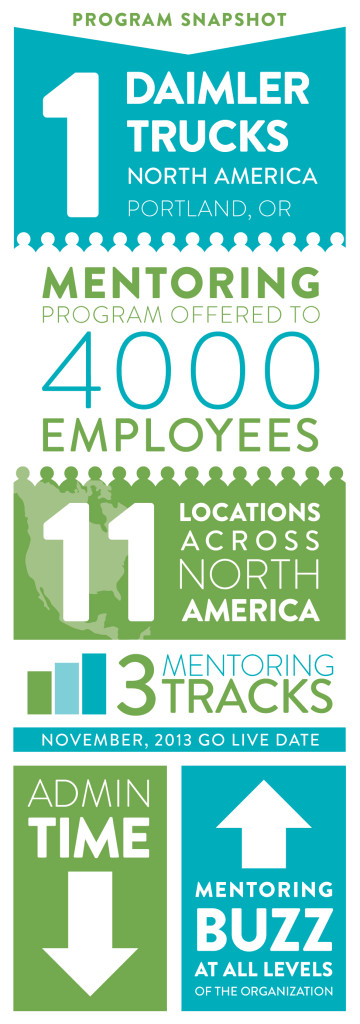
Initially limited by administrative burdens such as spreadsheets and a one-region software program with a poor learning structure, Daimler is now leveraging mentoring programs across all sites to efficiently instill corporate culture, learning, and development. Customized branding, executive-level sponsorship, and a self-matching enrollment system are only the beginning for the organization as they rediscover and strengthen their learning solutions through Chronus software.
Read the complete case study to see how Daimler is improving L&D engagement and effectiveness while streamlining program administration with this new learning infrastructure.
“We have an automated system that functions very well while providing an excellent user experience. We’re now able to scale this program across all U.S. locations. Today there is mentoring buzz at all levels, and Daimler realizes mentoring is key to the health of our organization.”
– Suz Hahn, Learning Architect, Daimler Trucks North America
About the DTNA Mentorship Program
The Daimler Trucks North America (DTNA) Program connects mentees to experienced mentors who can contribute to their professional and personal development. Mentees shift their potential by growing personal and professional relationships with mentors who act as role models and provide guidance. The program drives opportunities to develop business contacts, access industry information, and gain valuable insights from experienced and successful professionals. The DTNA Mentoring Program is designed to attract, motivate, develop, and retain talent while increasing productivity and growing a culture of sharing. Other benefits include sourcing new employees, familiarizing them with the organization, and acclimating employees to their jobs. Additionally, the program trains and develops performance for existing employees, encourages personal and professional growth, increases job satisfaction, identifies and develops employee potential to fill key leadership roles, and responds to the diverse needs of the workforce.
